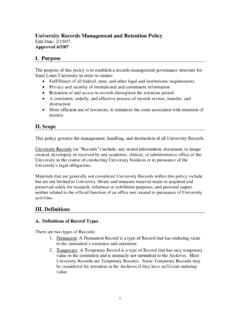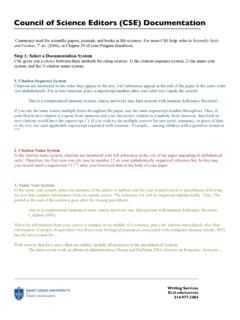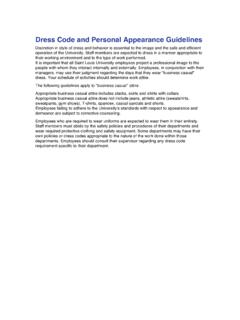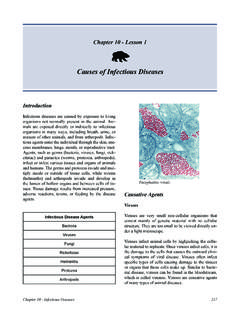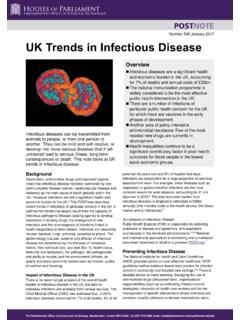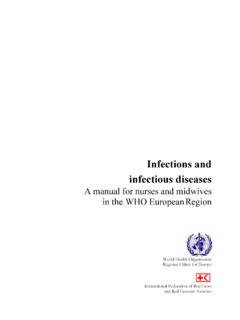Transcription of Infectious Diseases Curriculum/Syllabus - Home : SLU
1 Infectious Diseases Curriculum/Syllabus Revised 2013 2 Table of Contents Overview of Infectious Diseases Training Program .. 3 Description of Subspecialty Program In Infectious Diseases .. 9 Responsibilities While Rotating on the Clinical Infectious Diseases Consultative Service .. 16 Lecture Topics .. 19 Weekly ID Schedule .. 20 Block Diagram of Program Description .. 21 Optional Programs .. 22 ID Subspecialty Rotation at Saint Louis University Hospital .. 23 ID Subspecialty Residents Experience in the New Hope Clinic .. 26 ID Subspecialty Residents Rotation in Infection Control .. 29 Overview of Infection Control Program .. 31 ID Subspecialty Residents Rotation in Pediatrics at Cardinal Glennon Children s 37 ID Subspecialty Residents Rotation in the Clinical Microbiology Laboratory.
2 40 curriculum Review Articles (with links to web pages) .. 42 3 Overview of Infectious Diseases Training Program Internal Medicine Infectious Diseases Subspecialty Training Program Saint Louis University School of Medicine The Division of Infectious Diseases in the Department of Internal Medicine at Saint Louis University School of Medicine provides training for subspecialty residents. The duration of the subspecialty training is two years and consists of clinical and research training. Additional research training is available. The overall responsibilities, goals, and objectives for the subspecialty resident are detailed in a syllabus which is distributed to each trainee. The syllabus is designed to supplement the major medical textbooks and Infectious Diseases textbooks.
3 I. Goals The overall goal of the Subspecialty Training Program in Infectious Diseases is to prepare the trainee for a career as an Infectious Diseases subspecialist certified by the American Board of Internal Medicine. A. Goals of the Clinical Infectious Diseases Trainee Program to prepare subspecialty residents (residents in Infectious disease ) in the diagnosis and treatment of adult Infectious Diseases , including acute and chronic community acquired infections as well as nosocomial infections to develop the clinical and literature research skills required to determine the most current information for an individual case to provide experience and education in the proper use of anti-infective agents to provide expertise in communications with the clinical microbiology laboratory and anatomic pathology department in the evaluation of patients with Infectious Diseases to prepare verbal and written presentations of patient information, topic review, and current Infectious Diseases literature B.
4 Goals of the Research Infectious Diseases Trainee to develop skills in formulating, conducting, analyzing and reporting clinical and laboratory research projects to prepare the subspecialty resident to independently conduct clinical or laboratory research projects II. Objectives A. Specific objectives of the Clinical Infectious Diseases Trainee acquire an advanced understanding of host defense mechanisms and immune responses in relation to Infectious Diseases acquire an advanced understanding of the etiology, pathogenesis, diagnosis, and therapy of patients with the following Infectious Diseases problems: 41. fever of unknown origin 2. fever associated with skin rash 3.
5 Eye infections 4. upper respiratory tract infections 5. lower respiratory tract infections 6. urinary tract infections 7. intra-abdominal infections 8. infective endocarditis and intravascular infections 9. central nervous system infections 10. gastrointestinal infections 11. bone and joint infections 12. sexually transmitted Diseases and Diseases of the reproductive tract 13. HIV/AIDS 14. hepatitis 15. skin and soft tissue infections 16. sepsis and shock syndromes acquire an advanced understanding of common bacterial, viral, fungal, and other Infectious agents and their relationship to clinical Infectious syndromes acquire an advanced understanding of the etiology, pathogenesis, diagnosis and therapy of patients with human immunodeficiency virus infections and associated opportunistic infections acquire an advanced understanding of the etiology, incidence, and predisposing factors of nosocomial infections including the management and maintenance of indwelling vascular catheters acquire an advanced understanding of infections in special hosts (transplant recipients.)
6 Neutropenic patients and HIV infected patients) acquire an advanced understanding of anti-infective therapy including susceptibility testing, resistance mechanisms, pharmacodynamics and pharmacokinetics acquire an advanced understanding of toxins and virulence factors of Infectious agents acquire an advanced understanding of the principles and use of vaccines acquire a basic understanding of the principles and methods of epidemiology in relationship to Infectious Diseases acquire a basic understanding of medical ethics in medical practice and research acquire a basic understanding of the use of statistics in medical practice and research acquire an advanced understanding of Infectious agents that have potential use for bioterrorism acquire training in system-based medical practice 5 B.
7 Specific Objectives of the Research Infectious Diseases Trainee formulate hypothesis for the selected research proposal develop methods specific to the research plan, including assessment of the necessary laboratory tests, groups of animals, or number of patients using statistical methods understand procedures for obtaining Institutional Review Board approval by human studies committee if applicable become proficient in laboratory assays required in the research proposal analysis of the data including computer programs, statistical methods, and tabular and illustrative graphs formulate the analyzed data into abstract or manuscript form for presentation and publication understand ethical issues of human and animal research III.
8 Environment The Division of Infectious Diseases utilizes the Saint Louis University Hospital, Cardinal Glennon Hospital, the Center for Vaccine Development, and the New Hope Comprehensive Clinic (HIV Clinic) for clinical rotations for the Clinical Infectious Diseases trainee. The patient population includes a wide variety of Infectious Diseases problems. At Saint Louis University Hospital, active programs in HIV and transplantation (liver, kidney, pancreas, and hematopoietic stem cell [HSC]) provide a broad experience in unusual and opportunistic pathogens in addition to the routine medical problems of general internal medicine inpatients. Additional experience in surgical Infectious Diseases is gained by consultation on the trauma, neurosurgical, orthopedic and general surgery services.
9 The regional hemophilia center at Saint Louis University, and the general population in St. Louis provides experience in patients infected with HIV. Additional clinical experience is obtained in pediatric Infectious Diseases at the Cardinal Glennon Children s Hospital. The learning environment centers around the expertise of 13 faculty members with a wide variety of clinical and research interests. In addition, the Infectious Diseases subspecialty residents actively participate in the education and training of Internal Medicine residents. The clinical microbiology and virology services play an integral role in the education of subspecialty residents. The Center for Vaccine Development, the Division of Infectious Diseases research labs, and the resources of the Saint Louis University School of Medicine are available for research projects.
10 IV. Methods A. Clinical Infectious Diseases Training The subspecialty residents and specialty (Internal Medicine) residents are directly supervised in Infectious Diseases consultation by a faculty member. Patients referred to the Infectious Diseases Service for consultation are assigned to the supervising subspecialty trainee by a faculty member. The assigned subspecialty resident or 6 Internal Medicine resident is responsible for the initial evaluation of the patient, review of pertinent laboratory and radiology data, and formulation of the differential diagnosis and treatment plan. The consultation and recorded note is presented to the faculty member for review, discussion, and additional recommendations.





